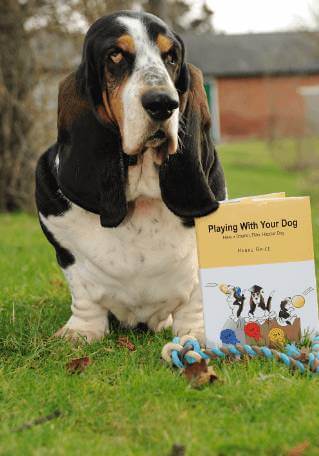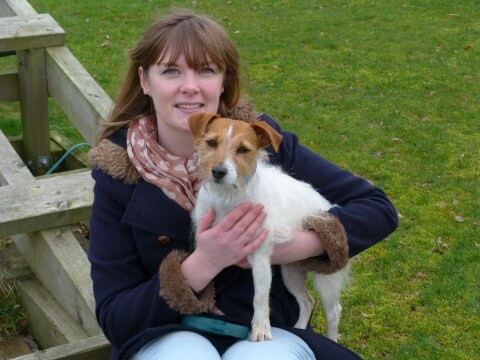We talk to Emma Buckland about life at the RVC.
Occupation: PhD student at the Royal Veterinary College, University of London
Pets: A leopard gecko called Sugar, and 2 female guinea pigs; Popcorn and Pepper
Interests: Making cute things with my sewing machine
Guilty pleasure: Iced coffee (lots of it!)
You’re currently studying for a PhD. What does this involve? A PhD is an apprenticeship into scientific research as a career. My work identifies reliable and valid indicators of positive emotions in pet dogs, to be incorporated into formal and informal welfare assessments. This will help to promote positive experiences in dogs and provide owners with more information, strengthening the human-animal bond.
What inspired you to work within the field of animal behaviour? I have always been fascinated by the reasons why animals behave as they do. I also studied the subject at the University of Bristol and was inspired by the knowledge and passion of the scientists who taught on this course.
Have your studies changed any of your views about how animals think?…And, has this influenced how you behave with your own pets? I realised how much dogs are capable of, which we sometimes take for granted. While recording dog behaviour in an unfamiliar environment, it amazed me when nervous dogs came in and within two hours they were sitting on my lap, relaxed and taking it in their stride, even after I did unpleasant things like shave their fur (to measure heart rate), or take their ear temperature. It was lovely to see this, and it is down to the mutual trust and respect between owners and dogs; the food treats also helped!
We’ve helped connect you with dog owners for your research into the emotionality of dogs. Is there anything you can share about your findings yet? I am about to analyse some data on tail wagging characteristics in relation to different emotions in dogs, and I hope this work will go beyond looking at tail wagging as a general indicator that all is well. I believe tail wagging might be a more general social communicator of emotion, rather than a reliable indicator of how dogs feel.
What have been the highlights in your studying so far?…And, challenges? The highlight has been my involvement with dog owners in the community, and the feedback that the research is interesting and informative. Analysing the data can be time-consuming, but worthwhile in the end!
What advice would you give anyone wanting to pursue a career in animal behaviour? I would advise them to read as much as possible on animal behaviour, and become aware of current trends in science and how this information is used by a wider audience.
For more information about the Royal Veterinary College visit http://www.rvc.ac.uk.
Learn more about our classes

Get Hanne's book, clothing and more
Hanne has a number of publications including her book Playing With Your Dog to help owners work out the games that are best suited for their pet to play throughout his life, from puppyhood to old age, available from Amazon. Check out Hanne's range of contemporary casuals The Collection – for pet lovers made from recyclable, organic materials that are sustainably sourced.


